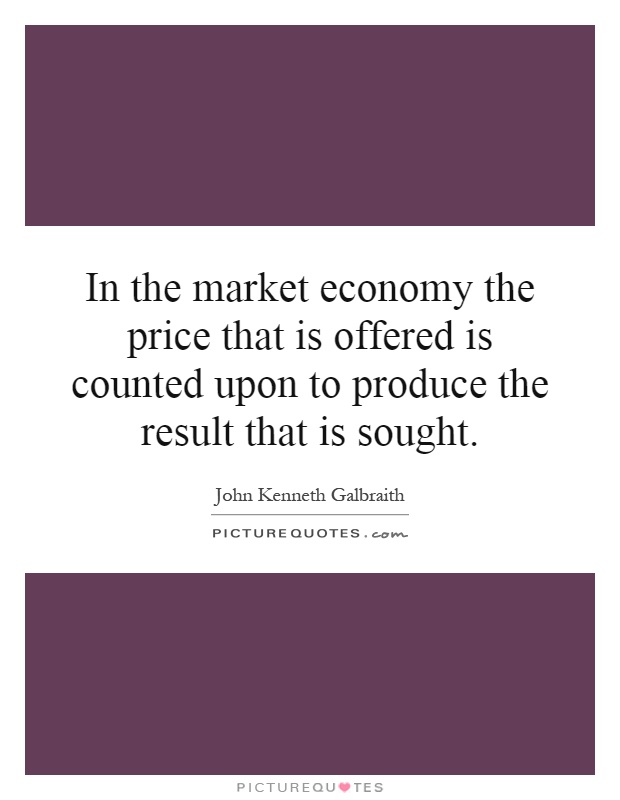In the market economy the price that is offered is counted upon to produce the result that is sought

In the market economy the price that is offered is counted upon to produce the result that is sought
John Kenneth Galbraith was a renowned economist and public intellectual who was known for his critical analysis of market economies and the role of prices in shaping economic outcomes. In his work, Galbraith often emphasized the importance of understanding the power dynamics at play in market economies, particularly how prices are determined and the impact they have on society as a whole.Galbraith argued that in a market economy, prices play a crucial role in allocating resources and determining the distribution of goods and services. The price that is offered for a particular good or service is seen as a signal of its value and scarcity, and is counted upon to produce the result that is sought by both buyers and sellers. However, Galbraith also recognized that prices are not always reflective of true value, and can be influenced by a variety of factors such as market power, information asymmetry, and externalities.
One of Galbraith's key insights was that in modern market economies, the power to set prices is often concentrated in the hands of a few large corporations or oligopolies. These firms have the ability to manipulate prices in order to maximize their profits, often at the expense of consumers and smaller competitors. Galbraith referred to this phenomenon as "countervailing power," and argued that it was essential for governments to intervene in markets in order to protect the interests of consumers and ensure fair competition.
Galbraith also highlighted the role of advertising and marketing in shaping consumer preferences and influencing prices. He argued that in modern consumer societies, prices are often determined not by objective factors such as production costs or supply and demand, but by the perceived value of a product or service as created by advertising and branding. This can lead to market distortions and inefficiencies, as consumers may be willing to pay higher prices for products that are not necessarily of higher quality or utility.
Overall, Galbraith's analysis of prices in market economies was characterized by a deep skepticism of the idea that markets always produce optimal outcomes. He believed that prices were not always reliable indicators of value, and that government intervention was necessary to correct market failures and ensure that prices served the interests of society as a whole. His work continues to be influential in shaping debates about the role of prices in modern economies and the need for greater regulation and oversight of markets.












 Friendship Quotes
Friendship Quotes Love Quotes
Love Quotes Life Quotes
Life Quotes Funny Quotes
Funny Quotes Motivational Quotes
Motivational Quotes Inspirational Quotes
Inspirational Quotes